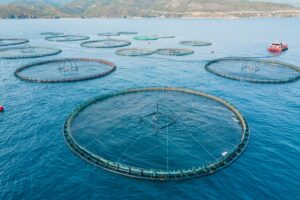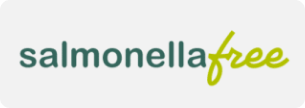A 2020 study published in Viruses (MDPI), titled “Growing Trend of Fighting Infections in Aquaculture Environment – Opportunities and Challenges of Phage Therapy”, provides a comprehensive overview of the potential of phage therapy within the aquaculture sector. As the industry faces growing challenges related to disease outbreaks, antibiotic overuse, and environmental sustainability, bacteriophages offer a natural, targeted approach.
In the context of increasing AMR concerns and tighter regulations on antibiotic use in fish farming, the insights shared in this publication remain highly relevant. We encourage you to revisit the publication to better understand the challenges and possibilities of integrating phages into aquaculture practices.
To read the full article, click here.
Introduction: Bacterial infections are among the most pressing issues in modern aquaculture, often leading to significant economic losses. Bacteriophages, viruses that selectively infect bacteria, represent a promising solution for the prevention and control of diseases in fish and shrimp farming.
Objective: This study aimed to analyse current knowledge and recent advancements in the use of phage therapy in aquaculture. The authors evaluate both the scientific potential and practical considerations of implementing phages as a biological tool in aquaculture environments.

Key highlights:
- Phage-Bacteria Interactions: This article examines how bacteriophages interact with major aquaculture pathogens, including Aeromonas and Vibrio It also highlights our bacteriophage cocktail, BAFADOR®, and presents research demonstrating its effectiveness in improving fish survival rates and supporting immune health.
- Application Methods: Examples of how phages can be applied into different aquaculture systems, from hatcheries to open-water environments.
- Regulatory Insights: A summary of challenges related to regulation, standardization, and public perception of phage-based products.
- Safety and Precision: The importance of phages’ targeted mode of action and their environmental safety profile.
Results:
- Phage therapy has demonstrated efficacy in protecting fish and shrimp farming against major bacterial pathogens, with the potential to significantly reduce antibiotic use.
- Studies showcased that phages can decrease mortality, minimise disruption to the microbiome, and support environmental safety.
- Formulations such as phage cocktails or feed-based delivery systems improve both effectiveness and practicality.
- Immersion and oral administration are currently the most promising application methods.
- Phages stay effective under different conditions, and even when bacteria develop resistance, they often lose their virulence in the process too.
The conclusion: Phage therapy is emerging as a practical way to support healthier fish and shrimp farming without relying on antibiotics. The study highlights that with the appropriate selection of virulent phages, strategic product development, and clear regulatory frameworks, phages will become a valuable part of sustainable aquaculture practices.
At Proteon, we are actively advancing the development of phage-based products for aquaculture. Our mission is to reduce antibiotic use, improve animal welfare, and support more sustainable protein production around the world.
Publication authors: Justyna D. Kowalska (Proteon Pharmaceuticals), Joanna Kazimierczak (Proteon Pharmaceuticals), Patrycja M. Sowińska (Proteon Pharmaceuticals), Ewelina A. Wójcik (Proteon Pharmaceuticals), Andrzej K. Siwicki (Department of Microbiology and Clinical Immunology, Faculty of Veterinary Medicine, University of Warmia and Mazur), and Jarosław Dastych (Proteon Pharmaceuticals).


